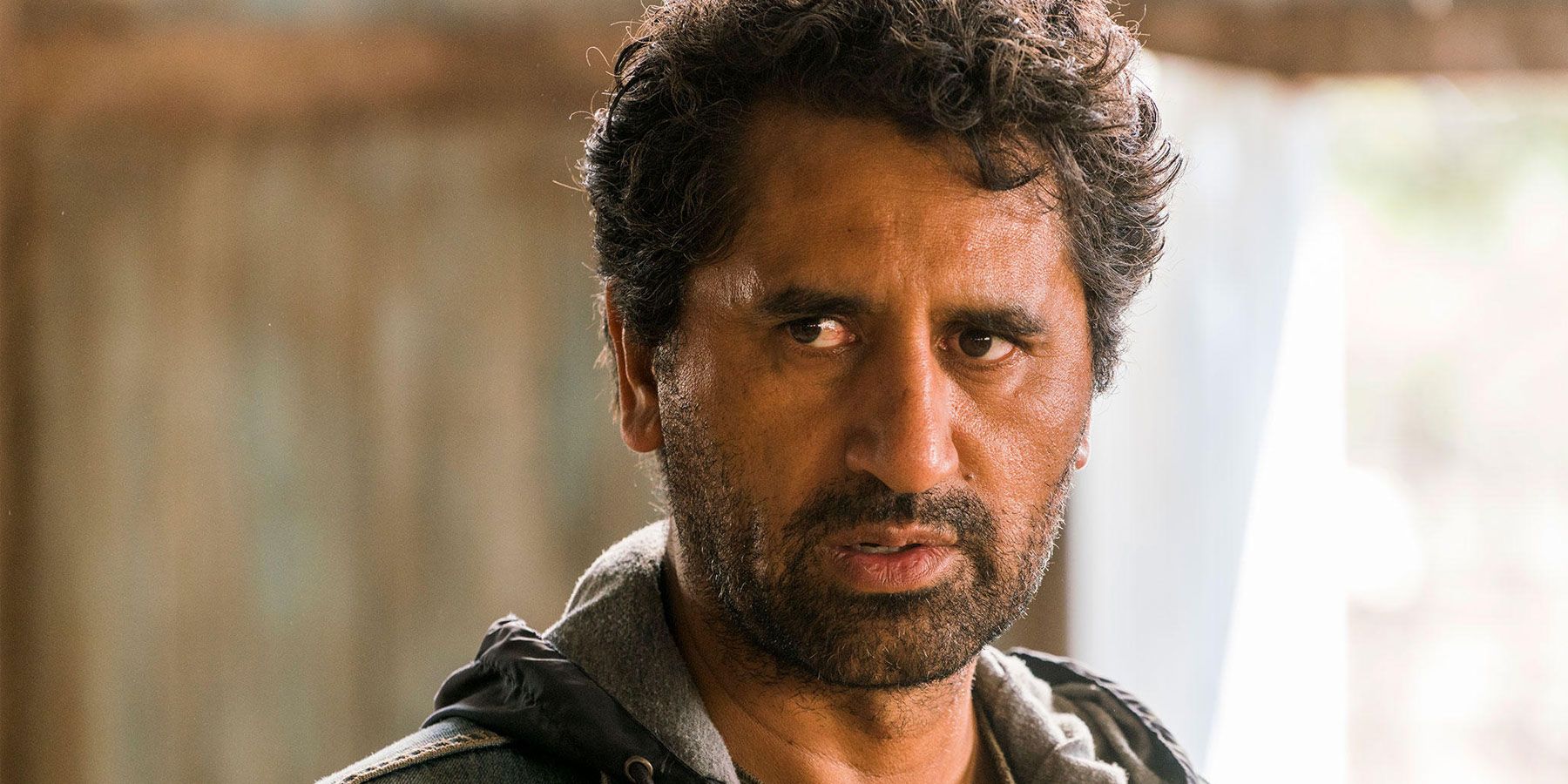Of all the characters on "Fear the Walking Dead," Chris Manawa has easily been the subject of the most complaints from fans. From the beginning, he's been whiny, self-righteous, angsty and difficult. In other words, he's been the typical American teenager, or at least the general stereotype of one.
But his lack of likability has reached a new level in the show's second season, where his brooding nature has rapidly mutated into apparent sociopathy. Or has it? That's part of the problem; his threats towards Alicia in "Sicut Cervus" escalated far too quickly for the transition to be believable. For the first time, his violent tendencies seemed unprovoked. Things got even worse in "Do Not Disturb," where he ruthlessly gunned down a farmer.
I kept wondering if he'd use the excuse of self-defense when explaining his actions to his father, and that's exactly what he does in "Date of Death." But rather than make me hate Chris more, their conversation actually gives him a bit more clarity as a character, even if I don't agree with his decision to become a killer. As it turns out, Chris isn't as much a sociopath as a byproduct of his Travis's pacifism in raising him. Via a monologue from Chris, we discover that the elder Manawa always encouraged his son to try and blend in with the crowd who constantly bullied him, rather than stand up to them. As a result of the emotional suppression, his compassion hardened into anger over the years, which has since given way to the kill-or-be-killed mentality that overtakes so many survivors in the "Walking Dead" universe.
That's a much more believable (and understandable) stance for Chris than him simply becoming a needlessly cruel psycho. That's not to say we root for him when he assists Douchebag 1 and Douchebag 2 in killing Douchebag 3 so they can hightail it back to San Diego. But we at least see where he's coming from. He's doing what his father's always told him to do -- he's blending in.
At this point, Chris isn't dealing with any true moral dilemma. He's made the decision to do whatever it takes to survive. The same can't be said for Travis, and that's where "Date of Death" derives most of its tension. He finds himself in an increasingly complex situation as he tries to save Douchebag 3's life, all while trying to bring back the son he once knew. How do you fight the enemy when you're helping one of them? And how do you still view them as the enemy when one of their party shows so much vulnerability? Lying on the floor of the barn -- shaking, bleeding out, and remorseful -- James is no longer an alpha-male scumbag to Travis. He's just a scared kid.
His struggle, along with Cliff Curtis' pitch-perfect portrayal of a rational man in an irrational world, continue to cement Travis as the show's strongest character. Even in "Fear the Walking Dead"'s weaker moments, it's always intriguing to see him try his hardest to stick by his moral code, even as the chaos around him makes it harder to do so. When, after Chris and the tourists have abandoned him, he makes his way to the gates of the Rosario Beach Hotel, he's a man defeated. It's no surprise that, upon reuniting with Madison, he's more concerned with his failure as a parent than any kind of intimacy.
The only downside to "Date of Death" is that it doesn't let Travis stew over his decisions long enough. The series could achieve a considerable dramatic payoff down the line if he and his son had stayed separated for at least a few episodes -- hell, maybe even a whole season, as with Daryl and Merle on "The Walking Dead" -- but Chris and his two companions make their way to the hotel gates in the closing moments, hinting at a violent showdown. While that will no doubt make for some hard decisions and brutal action in the final two episodes of Season 2, the confrontation between the two Manawas would have a lot more weight if the writers took their time with it.

